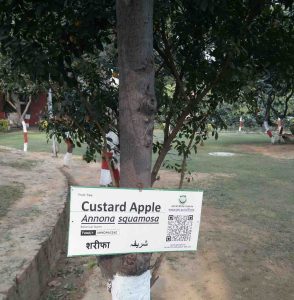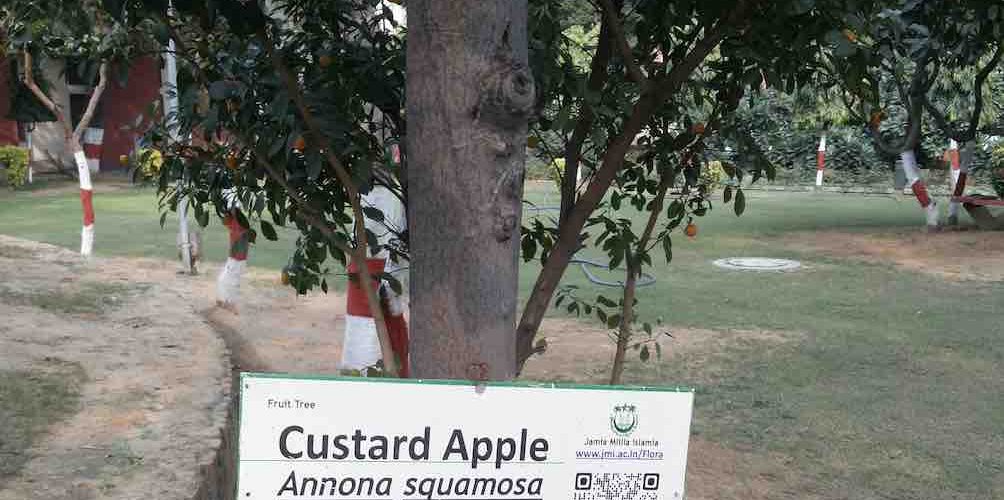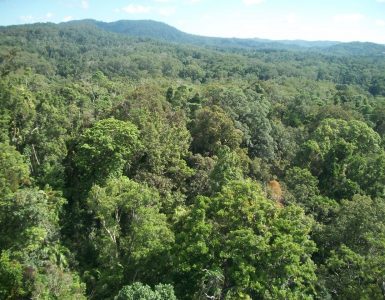When taking a stroll in my neighborhood park, which has more than 500 trees on the periphery, I sometimes get curious about a tree and try to identify its species, but beyond eight to ten trees, I couldn’t do more. Even the Google Image search is not always conclusive. If I get lucky and am able to find someone knowledgeable in the vicinity, my curiosity most often remains unanswered.
How many of us are able to distinguish different tree species? Unless you are a botanist or an expert on Trees, it is largely difficult to identify the trees.
What if there is an easier way to find the answers?
There is a solution, a great example of technology marrying ecology to create awareness, Jamia Millia Islamia University in Delhi has come out with a novel initiative. The trees on the campus are affixed with QR codes. By scanning the QR codes placed on the trees, students and visitors to Jamia Millia Islamia will be able to recognize the extensive greenery on the university campus.

The QR codes reveal details such as the species’ popular name, its native country or location, whether it is a fruit, medicinal or ornamental tree, and also its economic value.
Department of Biotechnology at the University conducted a botanical study of different plant species at the campus. Like many large universities in India, Jamia Millia Islamia, located in South East of Delhi, is flush with greenery and trees. The scenery is not only pleasing to our eyes, but the campus also provides a home to many birds including some uncommon and migratory birds
As per the project spearhead, a total of almost a hundred thousand trees including shrubs and medicinal herbs were inspected and cataloged. After the identification, trees on the campus were labeled with QR code stickers. The stickers also mention the English name of the Tree species along with the Hindi and Urdu names.
On scanning the QR code with any scanner available on the smartphone, the user is directed to the Royal Botanic Gardens, Kew website. Kew is a botanical research and education institution based in the United Kingdom. Their “Plants of the World Online” is a data repository of almost all plant species, including images and other pertinent information.
Jamia Millia Islamia initiative will be fascinating for students, inquisitive visitors, and even teachers of the University, to quickly identify the tree and know its attributes.
It will also be interesting if other institutions in India or abroad replicate this unique initiative.
Here is a video on the Change Started YouTube channel for a visual perspective.






Add comment